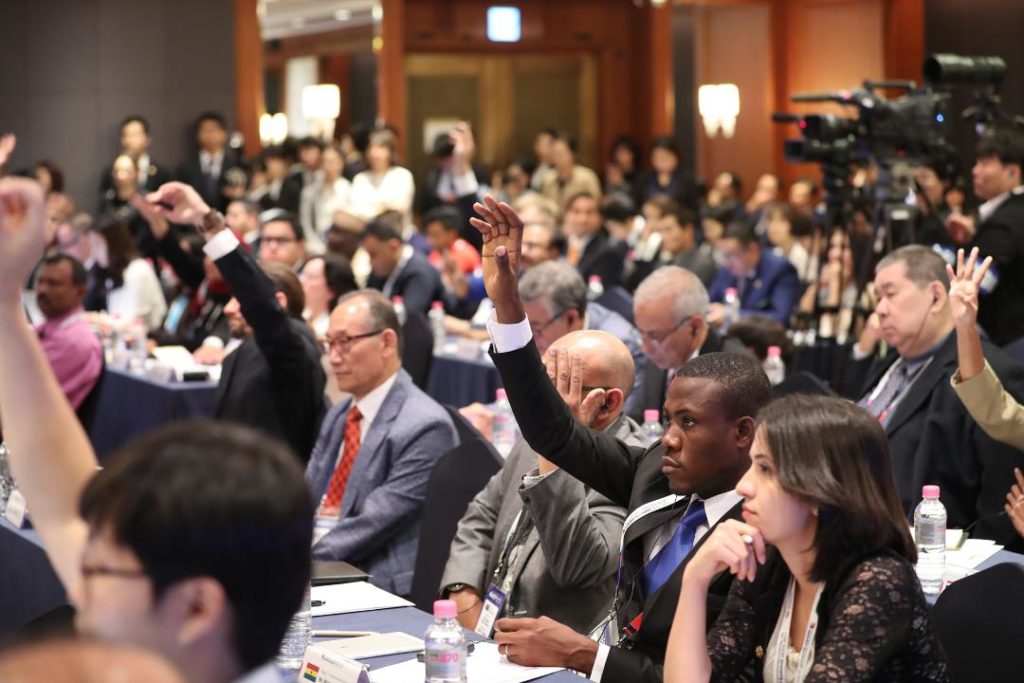By Olamide Bakare
I couldn’t imagine a world without the media. The global significance of the media cannot be overemphasised. In journalism parlance, the ripple effect of the ‘magic bullet’ theory model for communications on its audiences is invariably enormous.
With just a single investigative news item, the media can set the world ablaze. Likewise, every journalist across the globe possesses influential power that can shape and make a virile and peaceful society with a single encouraging news item, regardless of handful turmoil militating against global peace.
So, journalists across the world are virtually missionaries on a mission, but the prevailing news item on their platform is what makes the difference between the pacifists and warmongers.
There is no doubt that we live in a world that is inclined to crime and societal decadence. However, since the media have the responsibility to inform, educate and enlighten the society, it’s therefore important that the Fourth Estate show more commitment in the making of peaceful societies, in spite of the negative occurrences in our world.
It’s equally an indisputable fact that some journalists across the globe have been victims of societal ills in one way or the other, even government suppression that stems from draconian policies targeted at the freedom of the press.
In a press release by Heavenly Culture, World Peace, Restoration of Light (HWPL), an international NGO under the UN ECOSOC, it was reported by the International Federation of Journalists (IFJ) that at least 81 reporters were killed in 2017 while more than 70 media houses were shut down in Venezuela as a result of the prevailing socio-political unrest. No doubt, there are related cases across different countries of the world, especially in developing nations.
Although most of the unfortunate incidents suffered by journalists are not unconnected to unfriendly policies met to muzzle and gag the media, some of the ill-treatments happen as a result of self-inflicted on the ground of incessant dissemination of negatives news.
How the media see the world and project same to the public should be of a paramount importance as far as responsible and responsive journalism is concerned. This is where Max McCombs’ and Donald Shaw’s Agenda-setting theory comes to play. The theory places emphasis on the power and influence of the media to shape and form the public opinion on a burning issue.
In other words, the media possess an enormous influence on the behavioural pattern of the public based on the importance the media place on a subject matter. Hence the society’s disposition toward the media is contingent upon the media’s projection of the happenings in the society.
Apart from the fact that the media have the responsibility to keep the government in check, they also have a cardinal obligation of building of peaceful society through propagation of the good side of happenings and occurrences, irrespective of personal feelings or sentiment.
That should be the core values and objectives of any responsible and responsive media in any given environment. Unfortunately, “the media has lost its credibility due to the dissemination of a lot of negative news in an irresponsible manner”, said K. M. Harun, Senior Television and Media Consultant, Bangladesh.
Although one of the cardinal ethics of journalism is to report all sides of news with a view to maintaining a balance void of prejudice, as media professionals, it’s import we arm ourselves with the knowledge of being nation builders and building blocks for peaceful societies.
This is one of the major factors that fosters coexistence and promotes press freedom. Journalists are not just esteemed professionals; they are also missionaries with the mission of creating harmonious and conflict-free society.
“Who can play the most important role in making a world of peace without conflicts? It depends on journalists. If journalists dedicate themselves to peace building efforts, thoughts of people, especially, politicians will change. So we have high expectation in journalism,” said Chairman Man Hee Lee of HWPL.

